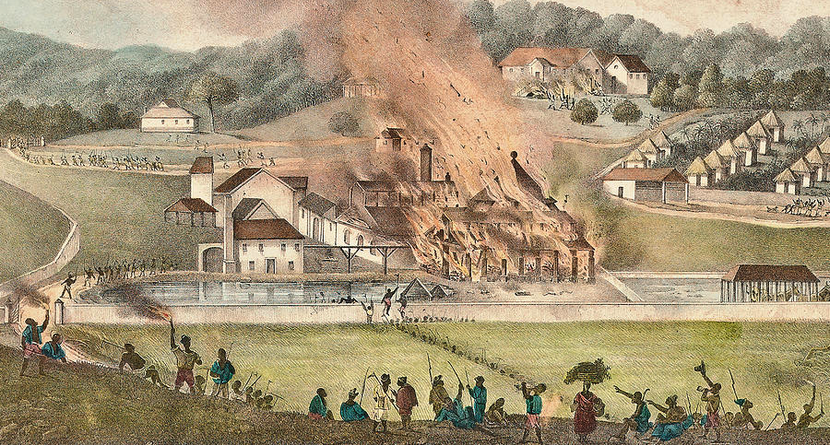The Baptist War, also known as the Christmas Rebellion, was an eleven-day rebellion of sixty thousand of Jamaican slaves that began on this day in 1831. It is one of the largest slave rebellions in the British Caribbean and was a major factor in the British government outlawing slavery in 1833. The name "Baptist War" came about because many of the rebels were Baptist in faith.
The rebellion was masterminded by the slave Samuel "Daddy" Sharpe, who had been given limited freedom to move around the island. Using this freedom of movement, Sharpe spread word of his plan and communicated with other slave leaders. After one prayer meeting, Sharpe cited examples of earlier slave revolts to encourage his followers and had those present swear on a Bible to follow the plan he had outlined.
The rebellion began on Christmas Day when leaders of the uprising went on strike, demanding more free time and a working wage. The strike escalated into open revolt two days later, when the planters refused their demands. Sugar cane fields were set on fire and a rebel military group known as the Black Regiment defeated slaver forces on December 28th.
The rebellion was put down in early January, however sporadic resistance continued for another two months as the rebels resorted to guerilla tactics. More than three hundred enslaved men and women were executed for their role in the uprising, including Samuel Sharpe, who was hanged.
